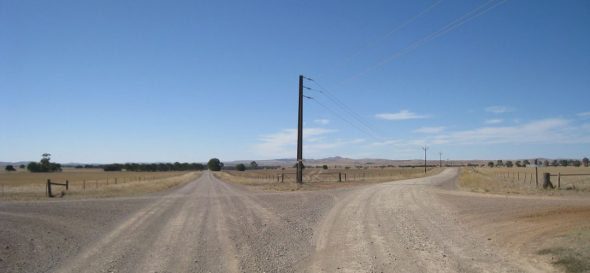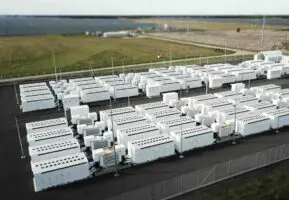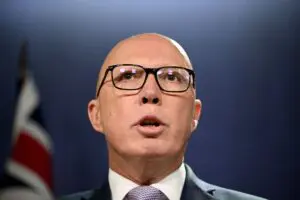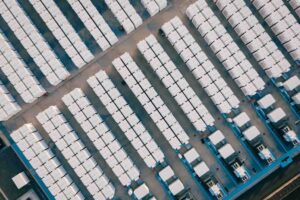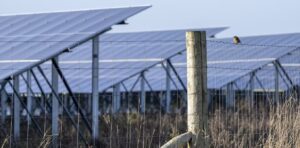Australia’s Coalition government discovered that it could not dismantle the Climate Change Authority created by its Labor predecessors, what with its bothersome analyses that Australia needed to do more on climate action, but it has found that it could be tamed.
The reconstituted CCA – containing a majority of board members appointed by the Coalition and sympathetic to its policy stance (including the architect of its own Direct Action policy), and with a much reduced staff – delivered its long-awaited and long-delayed report on climate policy options on Wednesday.
And it looks remarkably like something that the Coalition would have chosen to write itself. Or at least its moderate faction.

It is similar to what the proponents of Direct Action had always imagined their policy would become, once the Coalition fessed up to the fact that climate targets it signed to in Paris will not be reached with only wishful thinking, half-baked plans such as the emissions reduction fund, and without some sort of biting policy.
But the policy “toolkit” that the CCA recommends also looks a lot like the climate policy that Labor brought to the election campaign. That’s why the Coalition was relieved that CCA chose to delay its report until now, leaving the conservatives free to brand Labor’s idea as an economy-killer and putting off what will be an intense internal debate.
The tool-kit comprises an “intensity-based” emissions trading scheme for the electricity sector, and baselines for other industries. In effect, two separate emissions trading schemes – not the sort of language embraced by the likes of deputy minister Barnaby Joyce, and the large rump of climate deniers in Coalition parties.
The good news is that this report does give more opportunity to create a path towards bipartisan agreement on climate action, something that has not existed since Turnbull got rolled by Tony Abbott back in 2009 after agreeing with Kevin Rudd’s Carbon Pollution Reduction Scheme.
And those political sensitivities are still alive. Environment and energy minister Josh Frydenberg skipped around the issue when asked to respond. He dare not yet say that he is ready to embrace any sort of emissions trading.
The bad news is that the report recommends too little, too late. Whereas the previous board of the CCA recommended targets based on the science, global action and the economic risks of inaction, the current board has sought to second guess what might be achievable in domestic politics.
It makes no update, and indeed no reference to the CCA’s previous recommendation that the Australian government needed to have far more ambitious policies than its current 5 per cent cut by 2020 and 26-28 per cent by 2030.
The CCA had recommended a cut of between 45 and 65 per cent by 2030, and that was before the government signed up to the Paris climate deal that aims to hold average global warming to less than 2°C, and preferably as low as 1.5°C.
If the deal is to be taken seriously, that effectively means that the world has to reach zero carbon emissions before 2020, and that is what the CCA points out in its report.
But it doesn’t say by when. Rather than setting a target as its counterpart in the UK is encouraged to do, the CCA has handballed the issue of ambition back to the government. It recommends no acceleration. It does not say when coal-fired power plants should be closed. It wants the market – i.e. the big coal generators – to decide for themselves.
The trajectory that the CCA delivers suggests, according to the Climate Institute, that 90 per cent of Australia’s carbon budget would be gobbled up by 203o because the action would be too little, too late. This is exactly what the previous CCA reports warned – again, because the economic cost would be too intense.
Queensland University’s John Quiggin says that the report “fails to join the dots”, and two of the original directors, one of them Clive Hamilton, are expected to register their dissatisfaction by issuing an unprecedented dissenting report on Friday. They will claim that the CCA is no longer doing the job it was supposed to do.
But while the CCA may have written the Coalition a policy equivalent of a sick note, Australia still has to explain itself on the international stage. This weekend it is expected to ratify that deal this weekend at the G20 meeting, along with China and the US, meaning that the Paris deal will come into effect.

And Australia is again at the bottom of the class. A new report released by the Climate Change Performance Index shows Australia’s ranking as “very poor”.
It rates Australia’s Intended Nationally Determined Contribution (INDC) as “inadequate” (the sort of language that the old CCA used to use), and suggests that if all governments showed similar low ambition, global average warming would likely exceed 3–4°C.
“After receiving the worst possible rating for international climate policy in the CCPI 2015, Australia slightly improved in 2016.
“But the experts’ overall evaluation remains relatively low, ranking Australia as a very poor performer. Alongside the US, Australia is one of the few countries that requested the UNFCCC not to publish its GHG emissions data for the most recent year.”
Related Reading: Climate Change Authority cops out – just when we need it most

